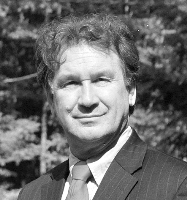State Senate hopeful Richard Livingston promises to put his constituents first
By Jeffrey PicketteWith the intent of becoming a full-time “citizen legislator,” Richard Livingston, a Republican candidate for the Norfolk, Bristol and Plymouth District state senate seat, has promised to make “constituent service” his number one priority if elected in this November’s general election.
But before Livingston is able to go one-on-one with incumbent state senator and Democrat Brian Joyce for a chance to represent the district, this 57-year-old Milton resident will first have to defeat Canton selectman Bob Burr in the Republican primary this September.
What may otherwise seem like a daunting task — winning a race against two experienced political figures — this self-professed “average Joe” said he is “confident” in his chances.
“As far as the naysayers who feel that because I’m not a [six] year incumbent town selectman or I’m not a 14-year incumbent state senator in this election, but an average citizen, that I don’t have a chance — the campaign is alive and well,” Livingston said. Livingston admits that he is in a situation where he lacks name recognition, so he spends much of his free time crisscrossing the ten towns that make up this senate district, including Canton.
Last Saturday, for example, he spent the morning with the Milton and Quincy Republican committees putting together care packages for troops overseas. In the afternoon, he planned to shake hands at Cunningham Park in Milton, Shaw’s Supermarket in Easton and Trucchi’s Supermarket in West Bridgewater.
“I feel the way I can get elected is to be out there with the people,” Livingston said.
Echoing Senator Scott Brown’s campaign slogan of “the people’s seat,” Livingston emphasized that “elected officials are hired by the constituency of their district.”
He said the reason he is running for state senate is to improve “constituent service,” something he feels politicians only do when running in a contested race.
“When a constituent sends a letter to their state senator or congressman or representative and they do not get a response back, then that individual has lost sight of what it is to be an elected official,” Livingston said. “When your constituents call you because of a pothole at the end of the street, you respond to that call.”
In order to help carry out this promise, Livingston said he would became a “citizen legislator,” where his senate post would be his only job, so that he can “limit any other distractions.”
“The voters have expressed an appreciation that I would make them my priority,” he said.
Livingston said the people he has met with so far on the campaign trail have expressed a concern over the state of the economy and the high unemployment rate.
“My objective is to get tax dollars back into the pockets of working men and women of the commonwealth, and that will give them the earning capacity and the purchasing powers necessary to patronize their local establishments, which will in turn create meaningful employment,” he said.
One of his goals is to rescind the 6.25 percent sales tax on alcohol. Prior to the tax hikes that went into effect last August, alcohol sales were not taxed.
“This doesn’t help job creation; it kills it,” Livingston said.
Along with alcohol being taxed for the first time, last August’s tax increases included a 25 percent jump in the general sales tax, from five percent to 6.25 percent. Livingston said he would “seriously consider” and would “have no problem looking at” repealing this tax hike as well.
He also wants to reform the Chapter 40B affordable housing law, something that has sparked much debate in Canton, especially with the recent Massachusetts Supreme Judicial Court ruling to allow New Jersey-based Roseland Property Company to build affordable housing units on Randolph Street.
Livingston called Chapter 40B a “carte blanche” and said that these laws have “left local cities and towns impotent to enforce many of their local conservation, wetland, zoning and building laws.”
A Milton resident for the last 25 years, Livingston served as a town meeting representative there for 17 years, until 2001. He is a division clerk at the MBTA and went back to school to receive a bachelor’s degree in legal educational service with a concentration in public advocacy from UMass Boston in 2005. He has also spent time advocating for asbestos victims and their families.
“I’m giving you my resume,” he said. “I’m optimistic that the people are going to like what they hear from me.”
Short URL: https://www.thecantoncitizen.com/?p=2468











